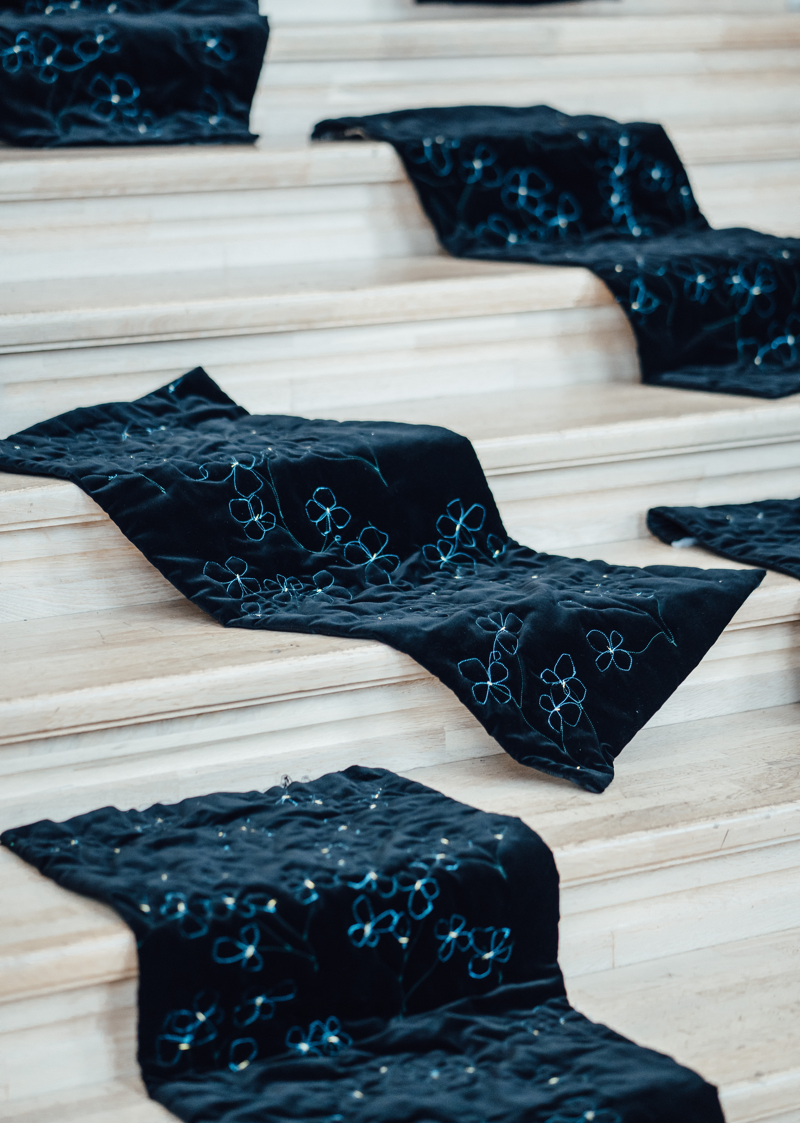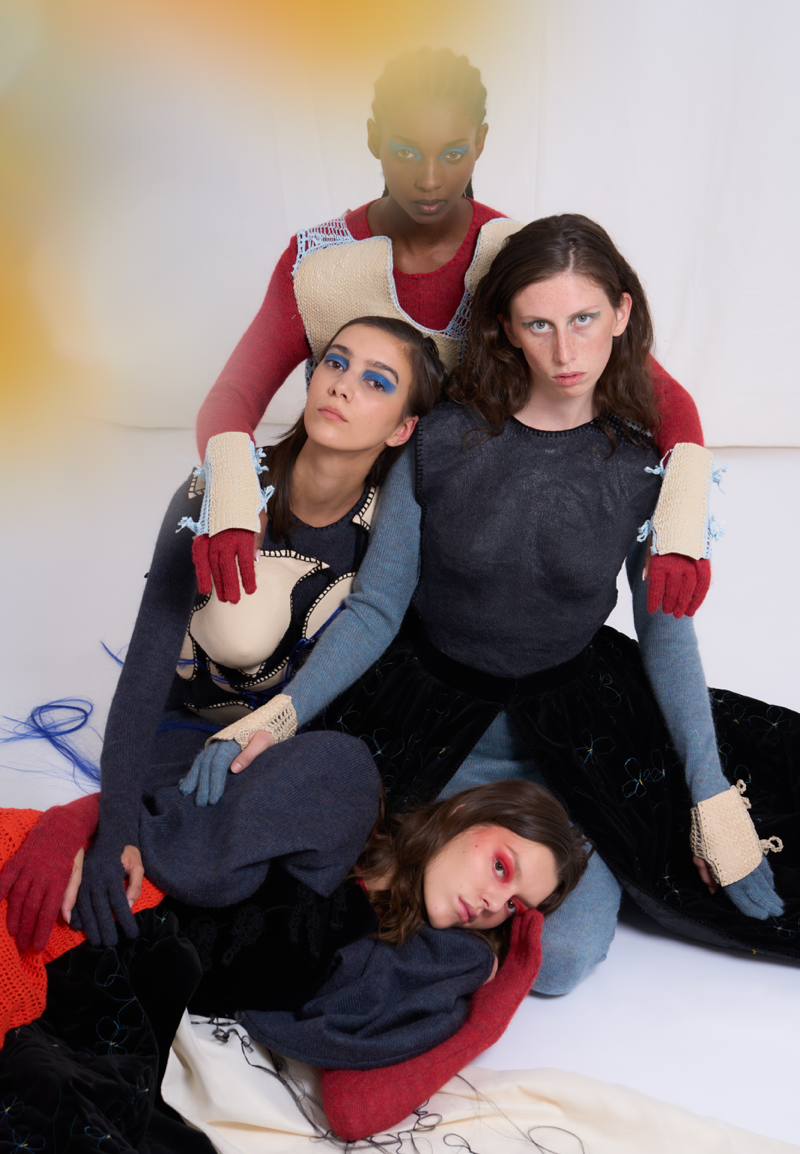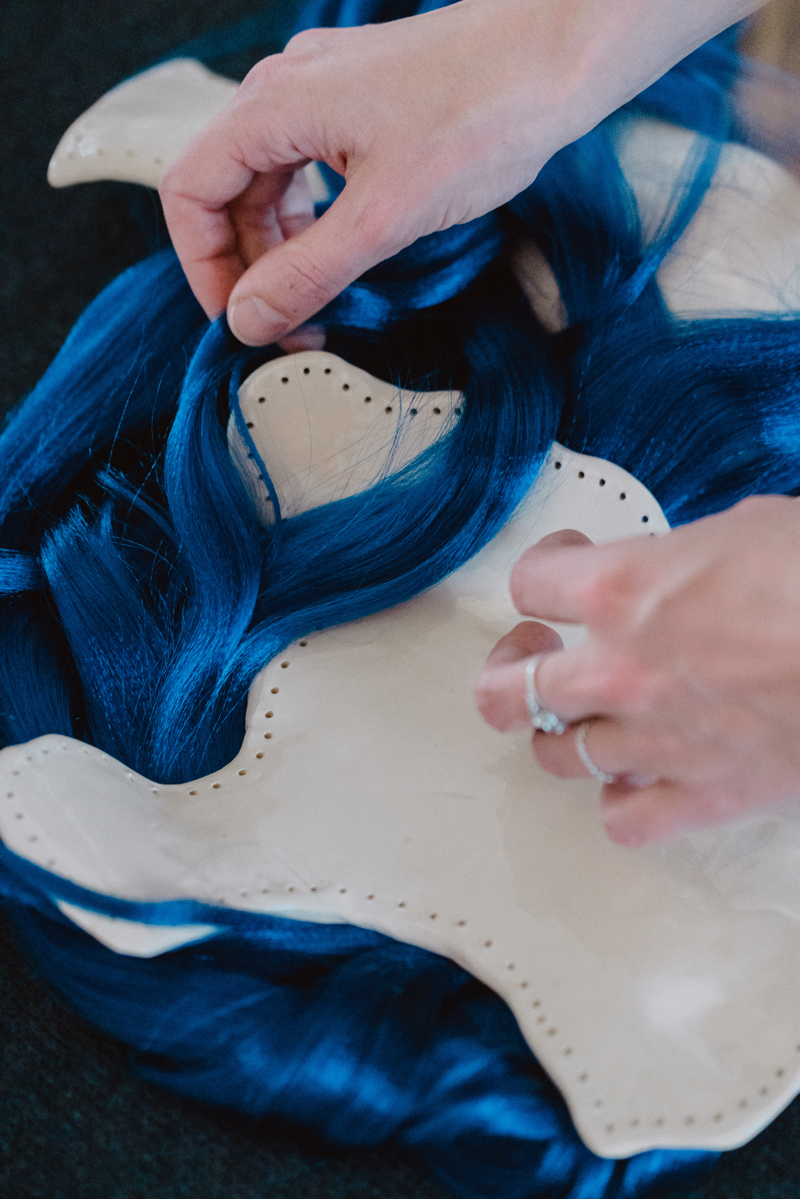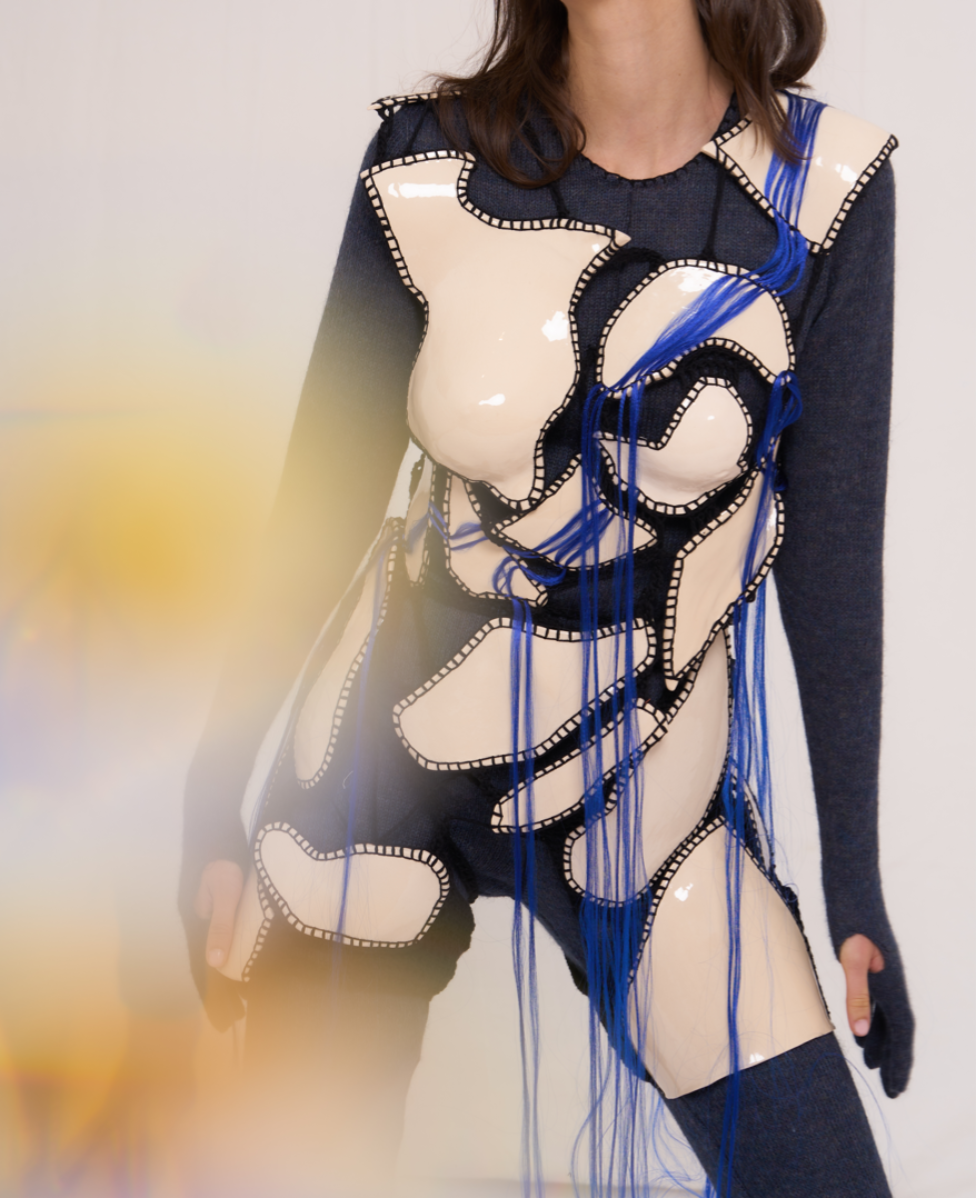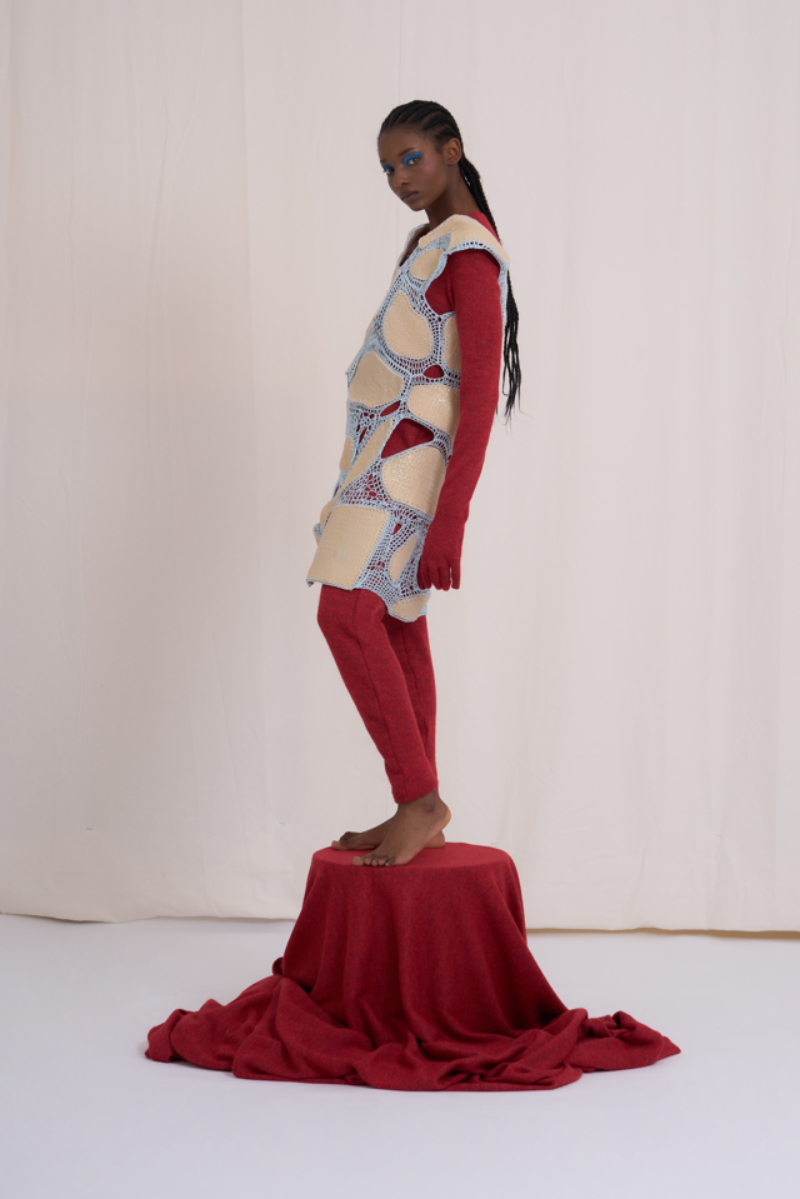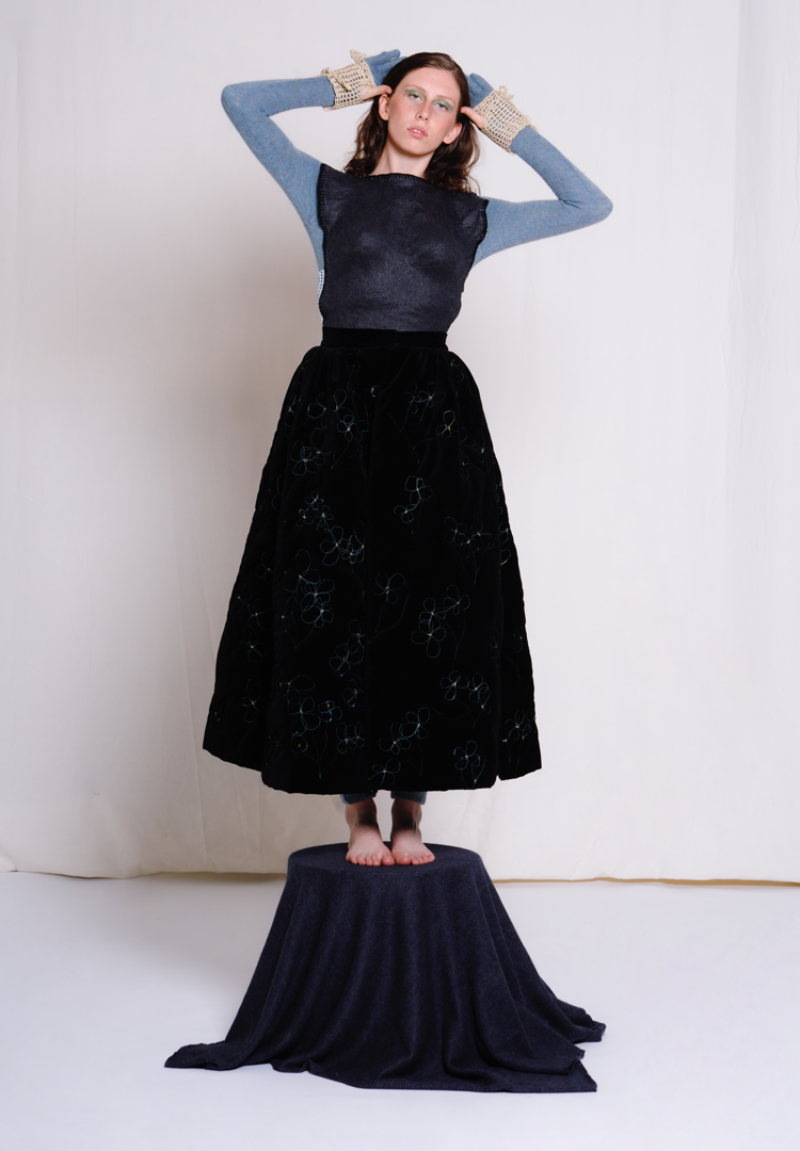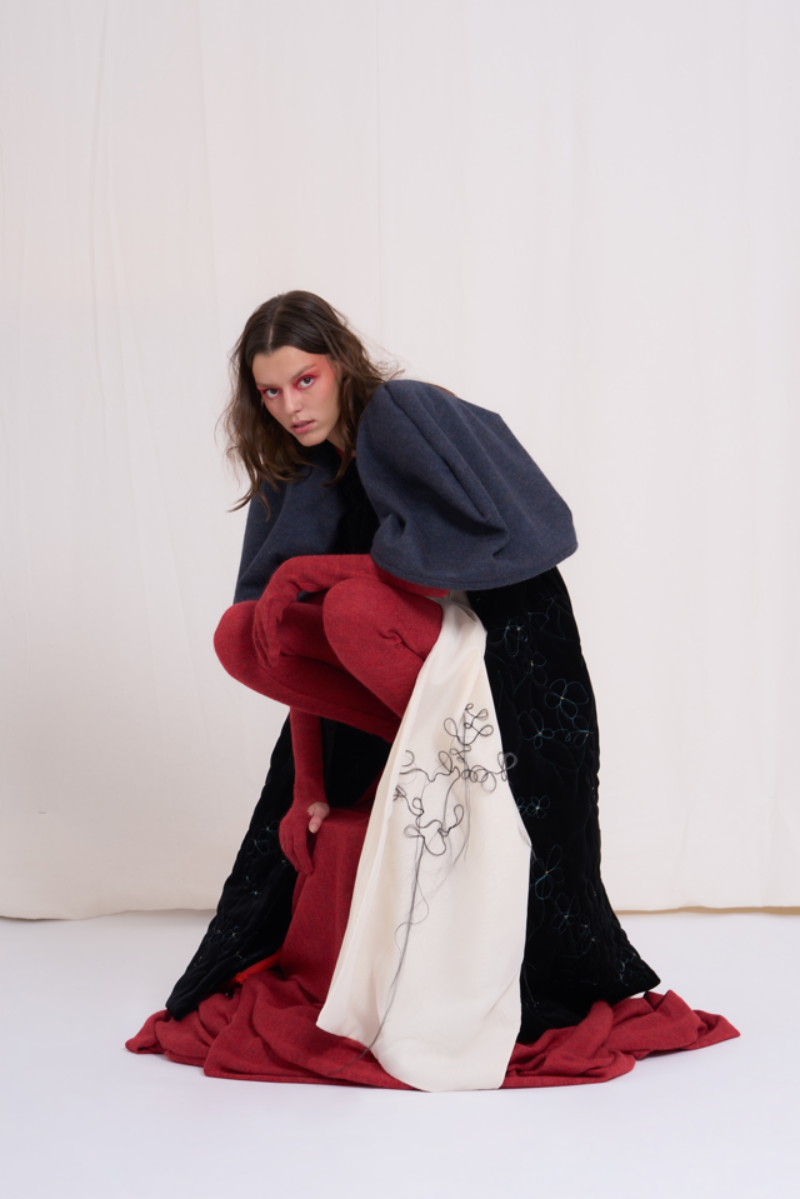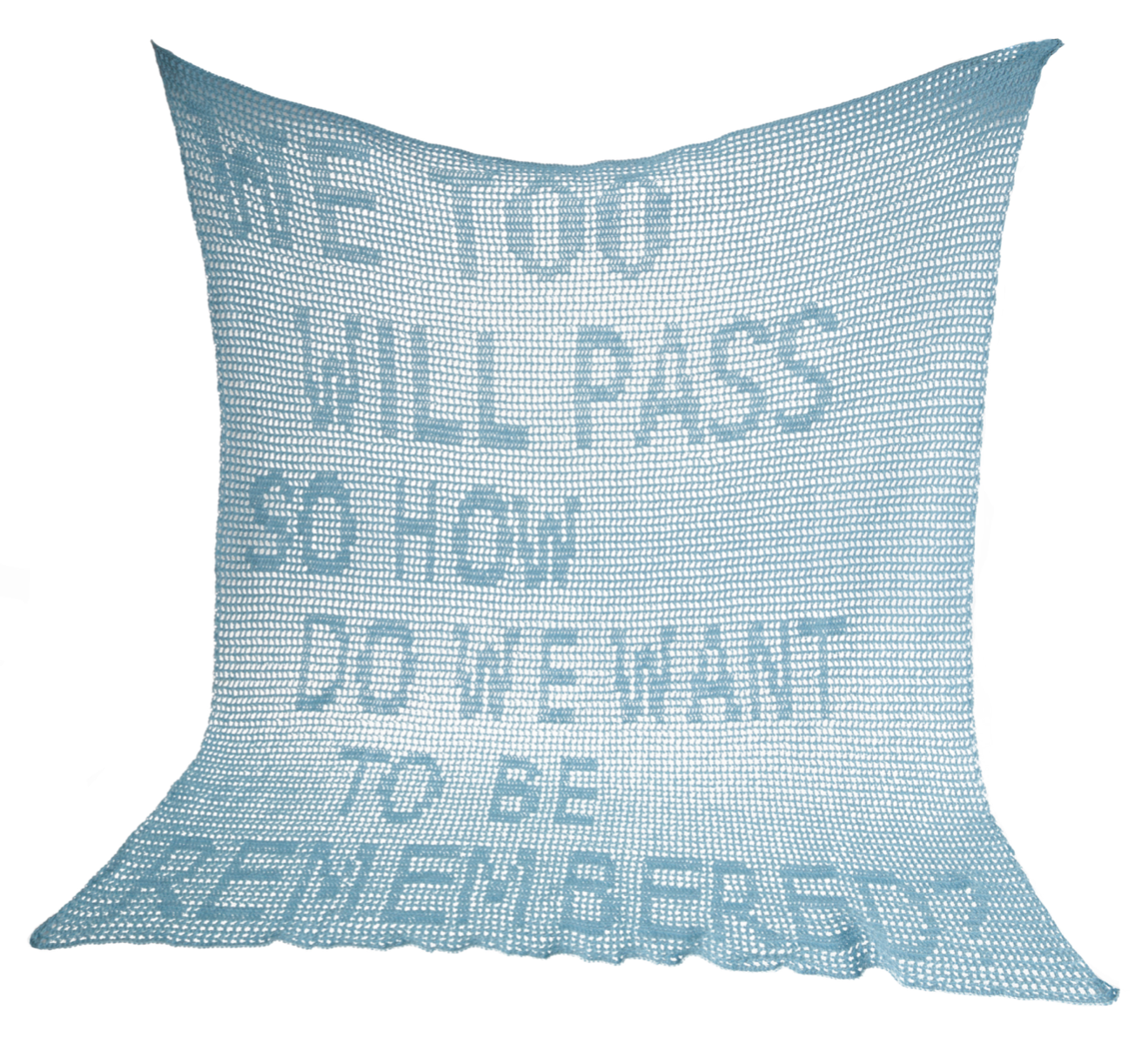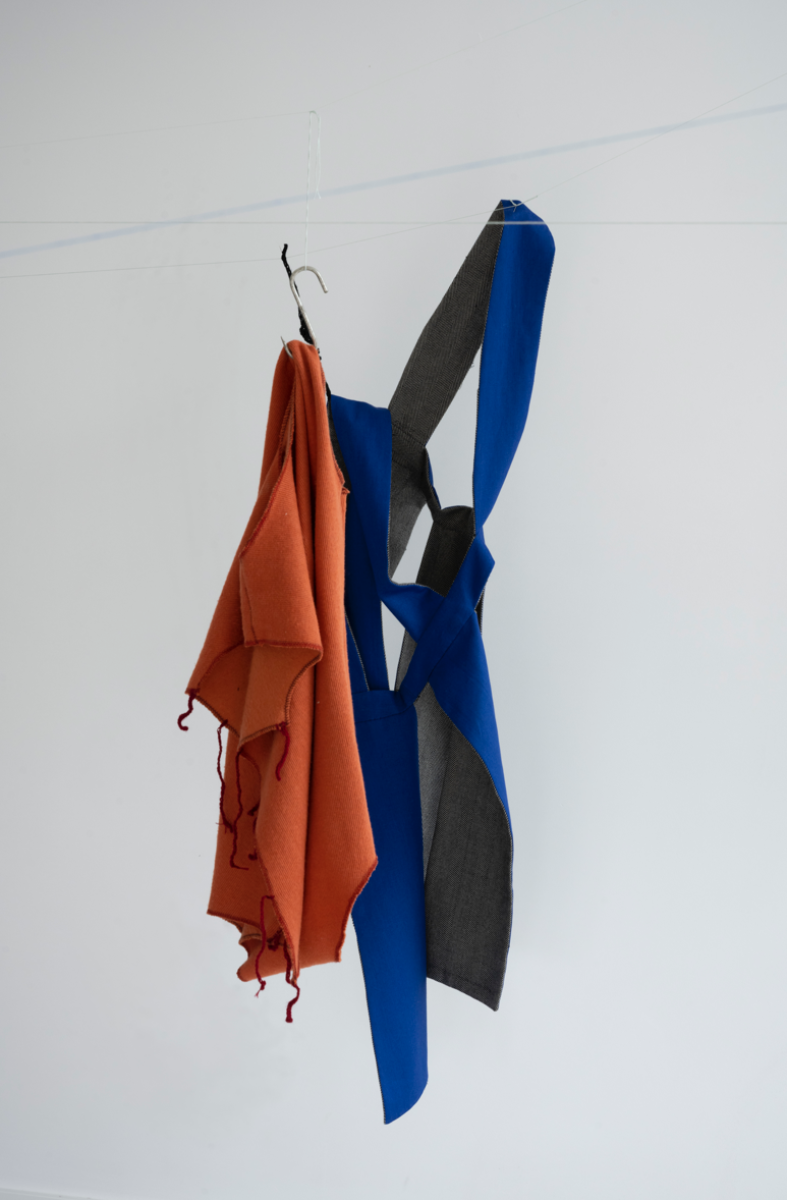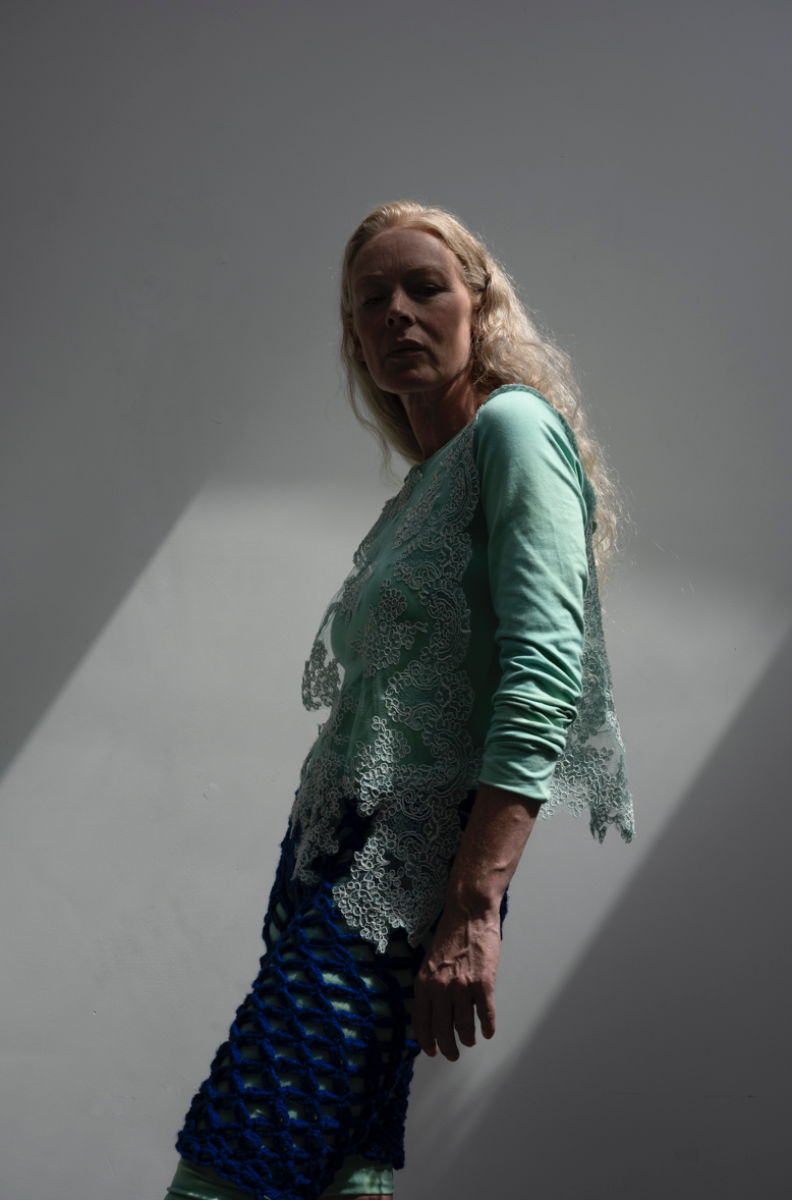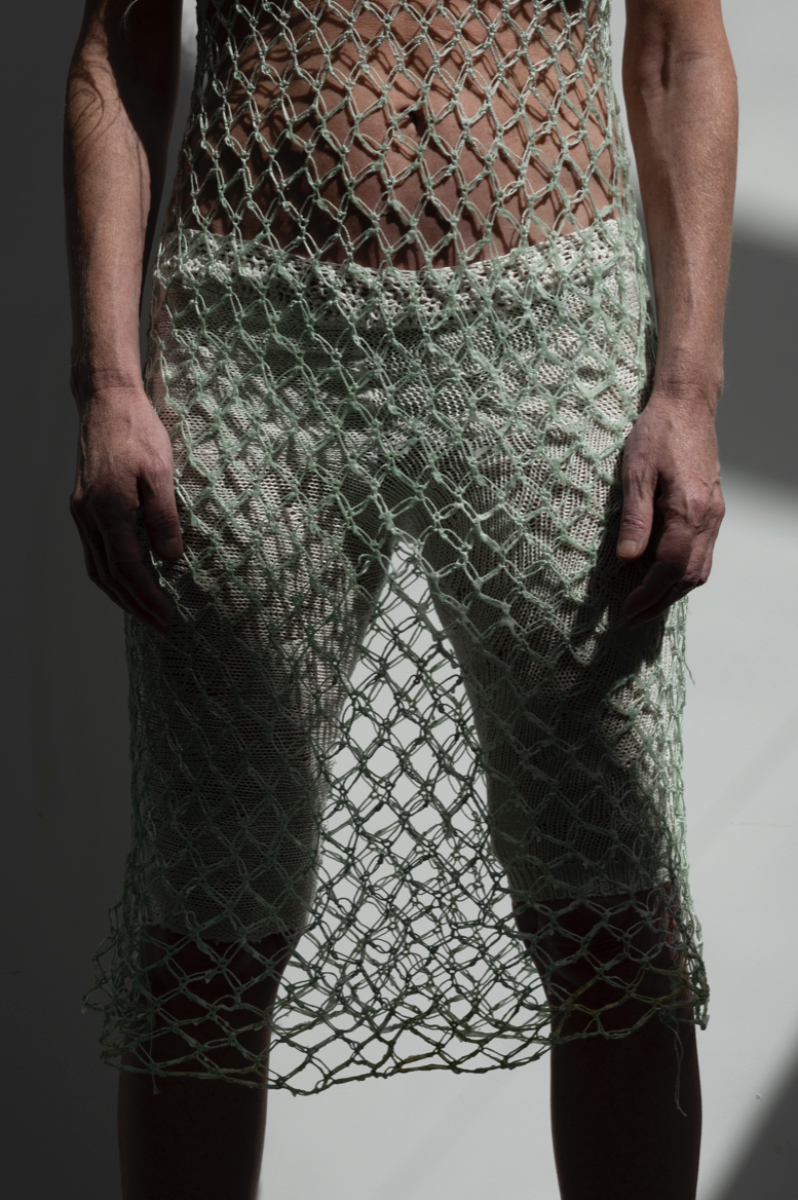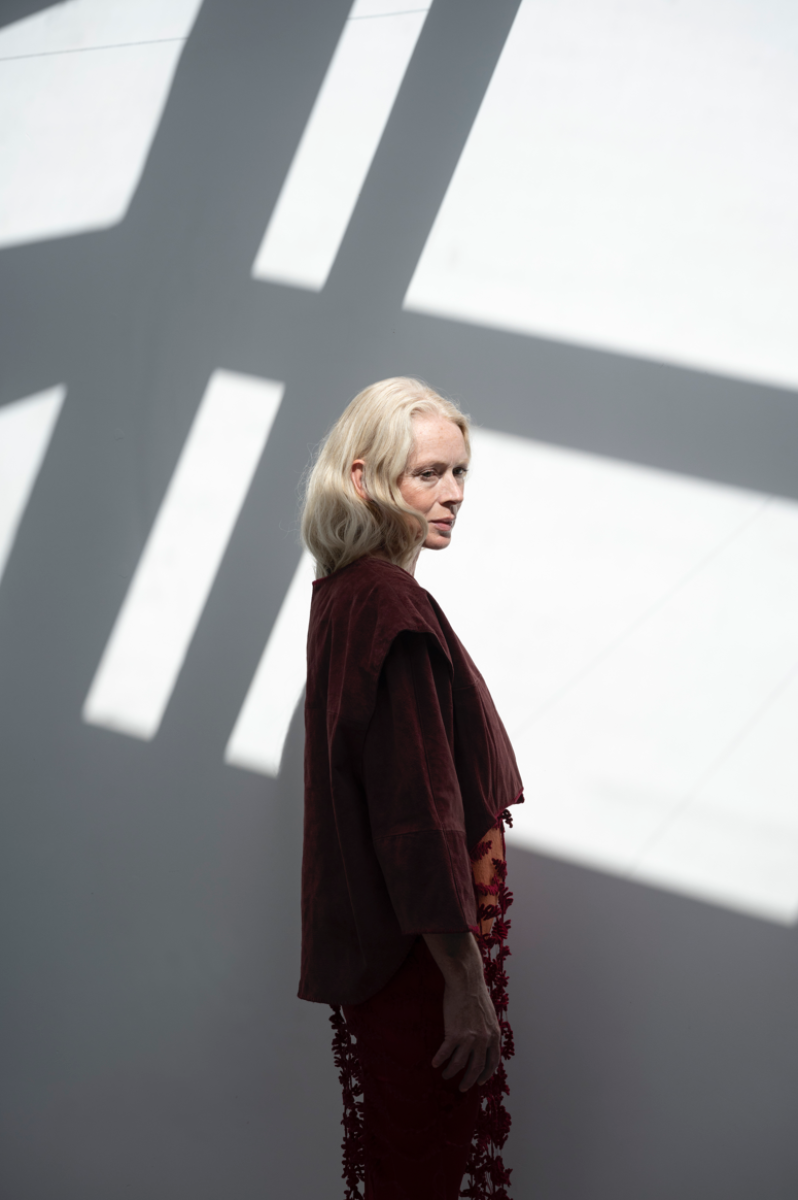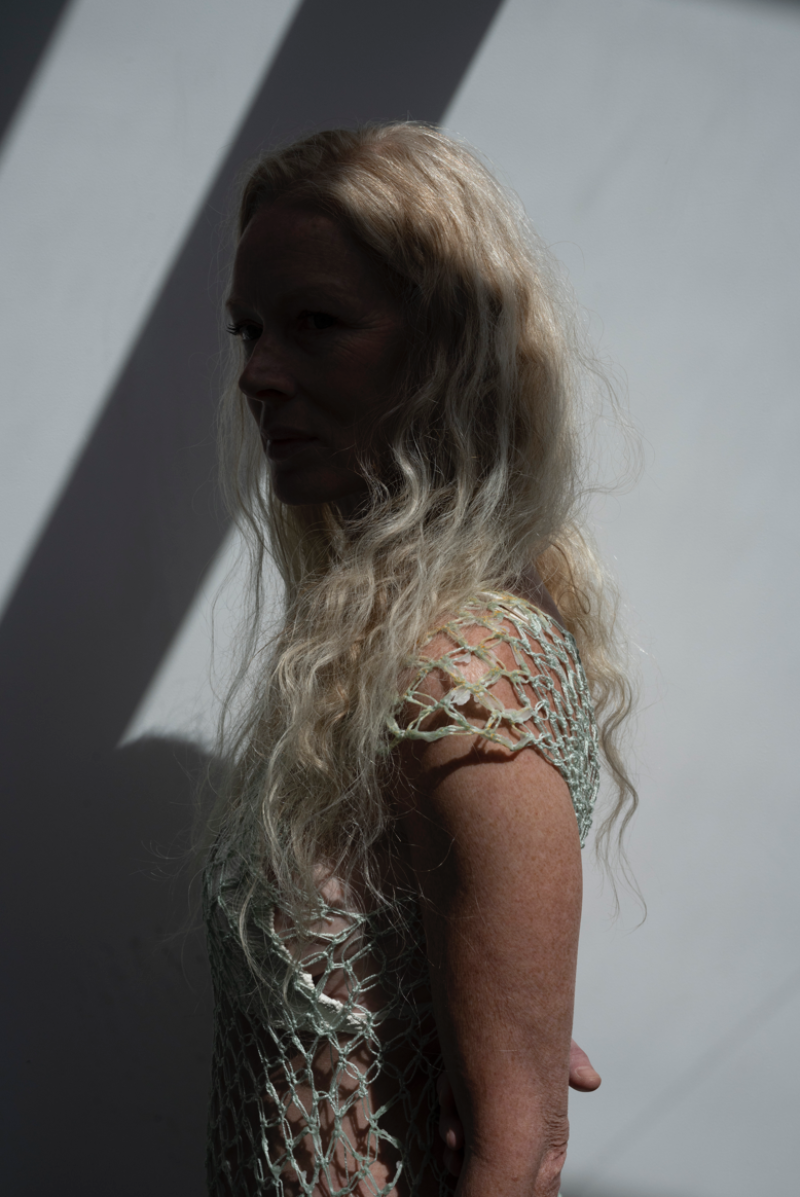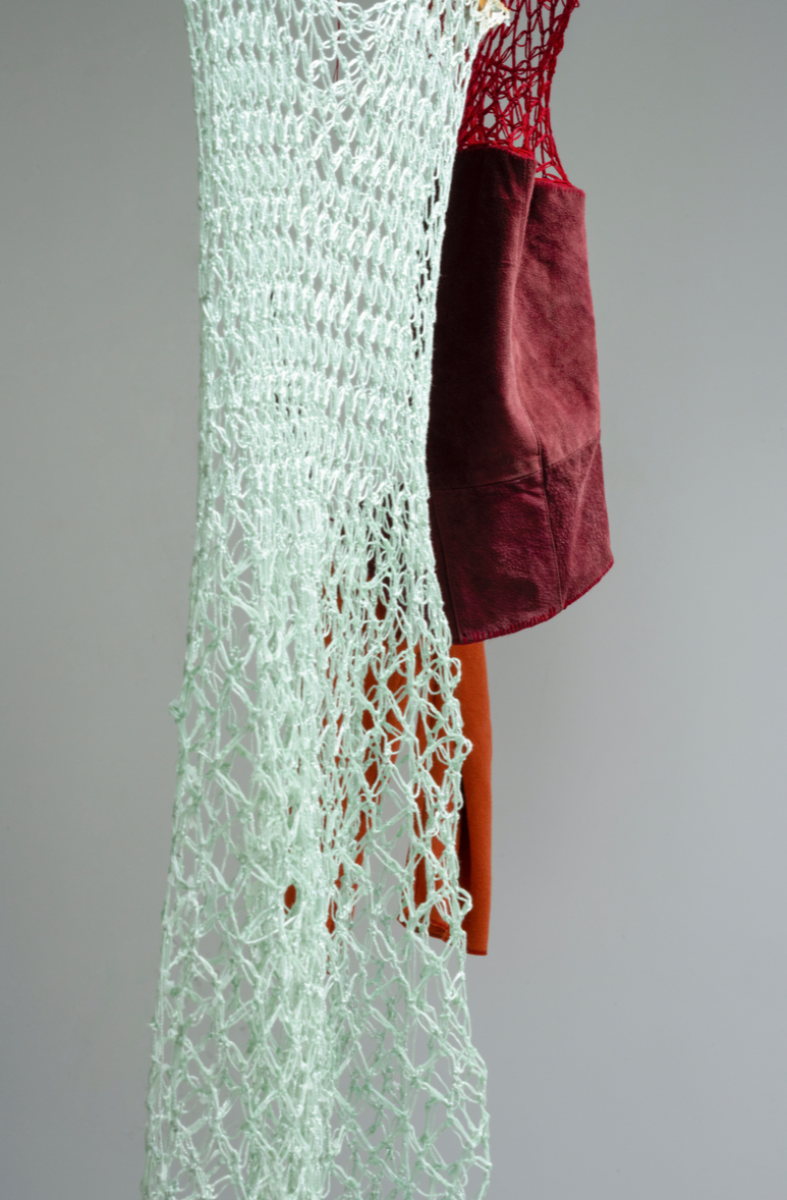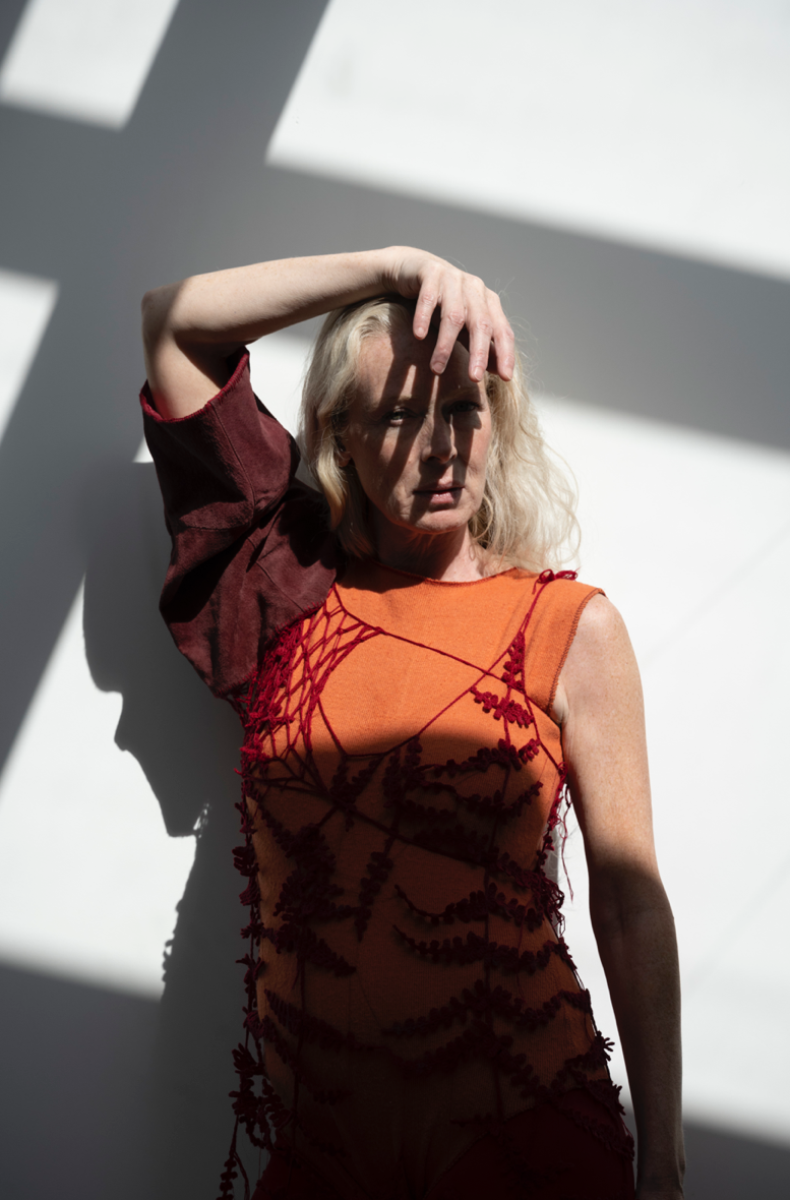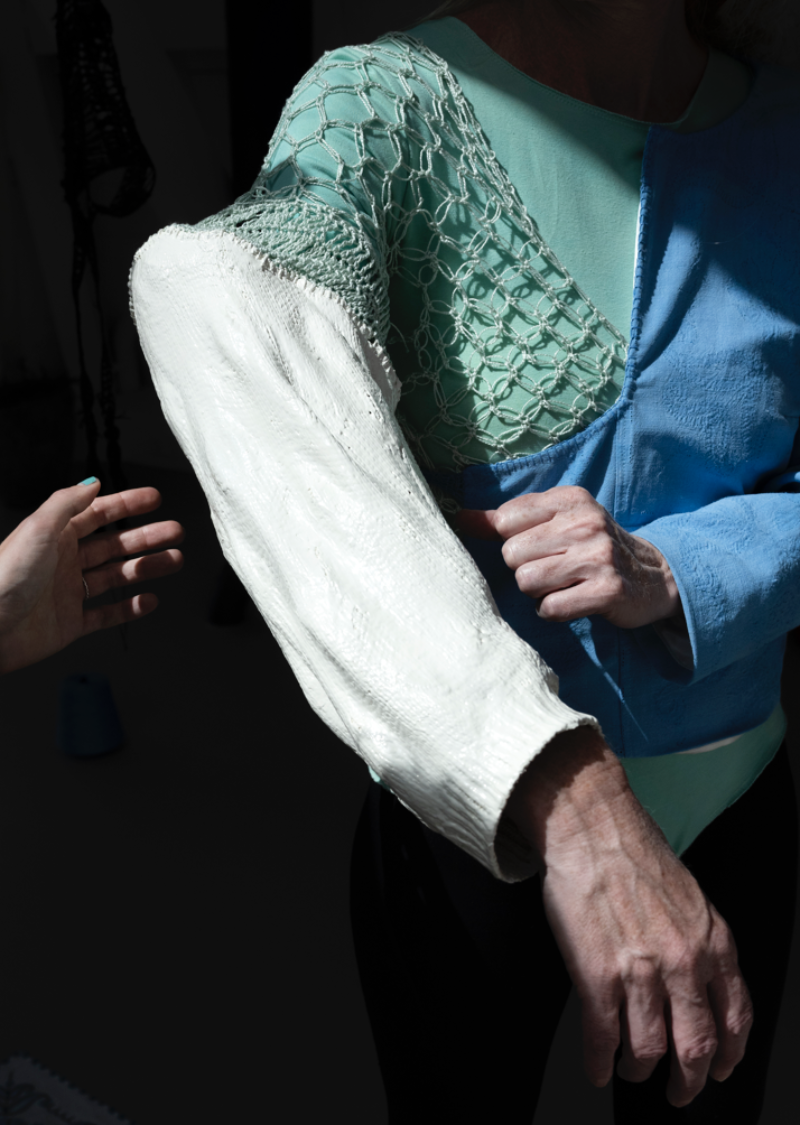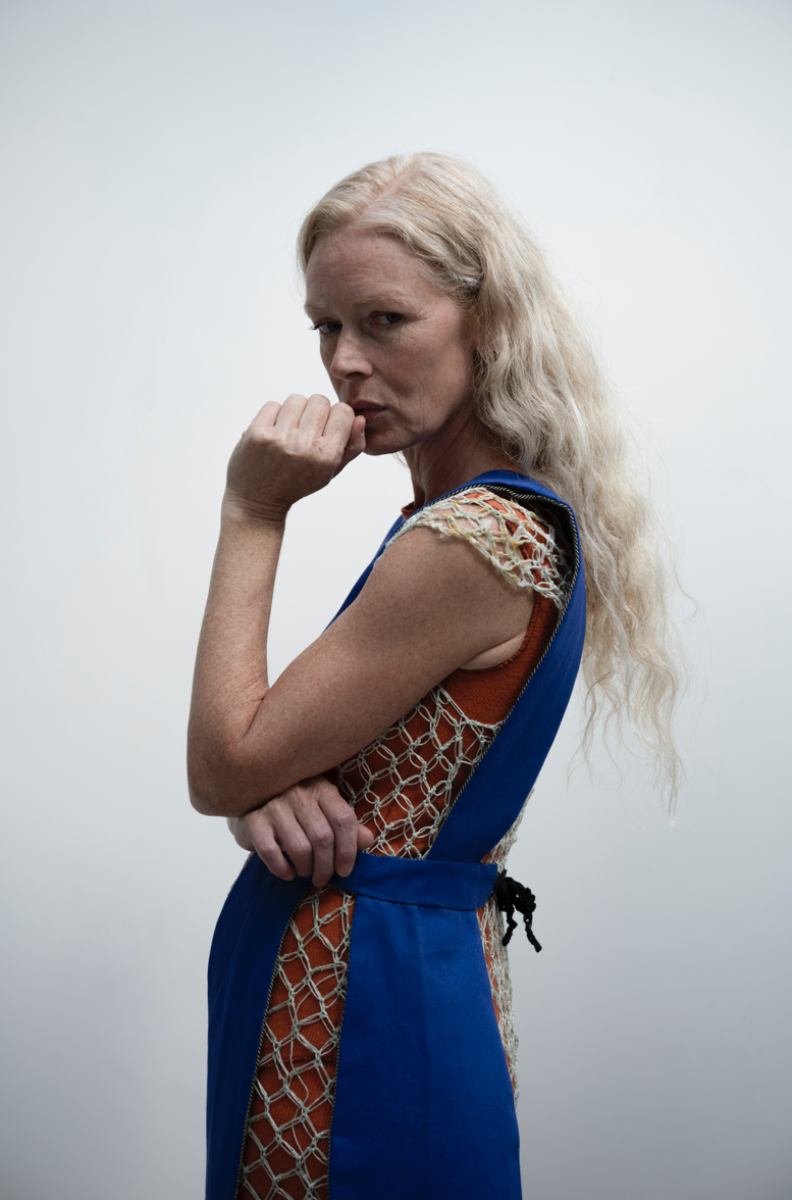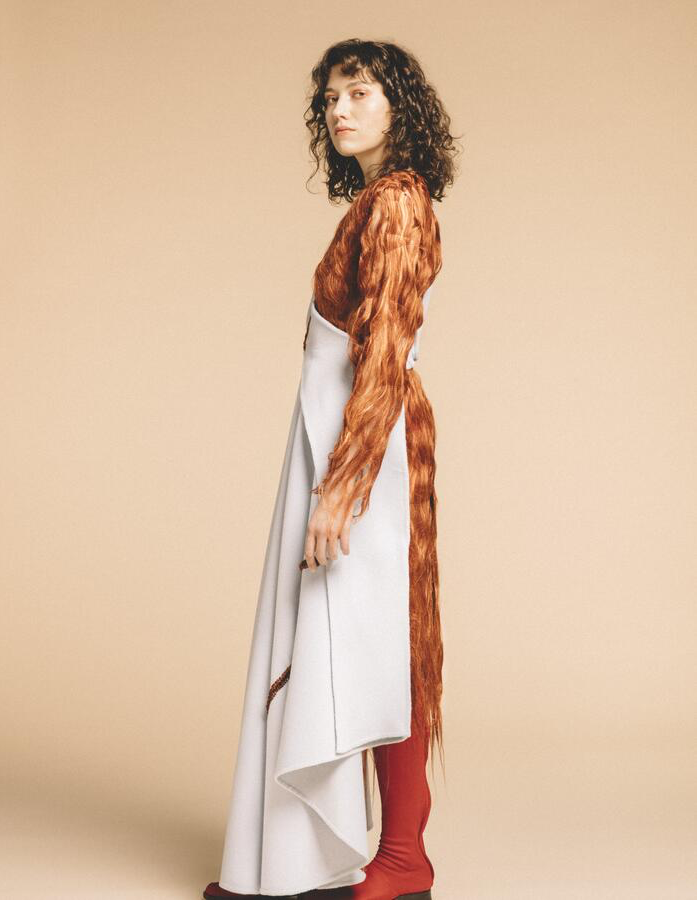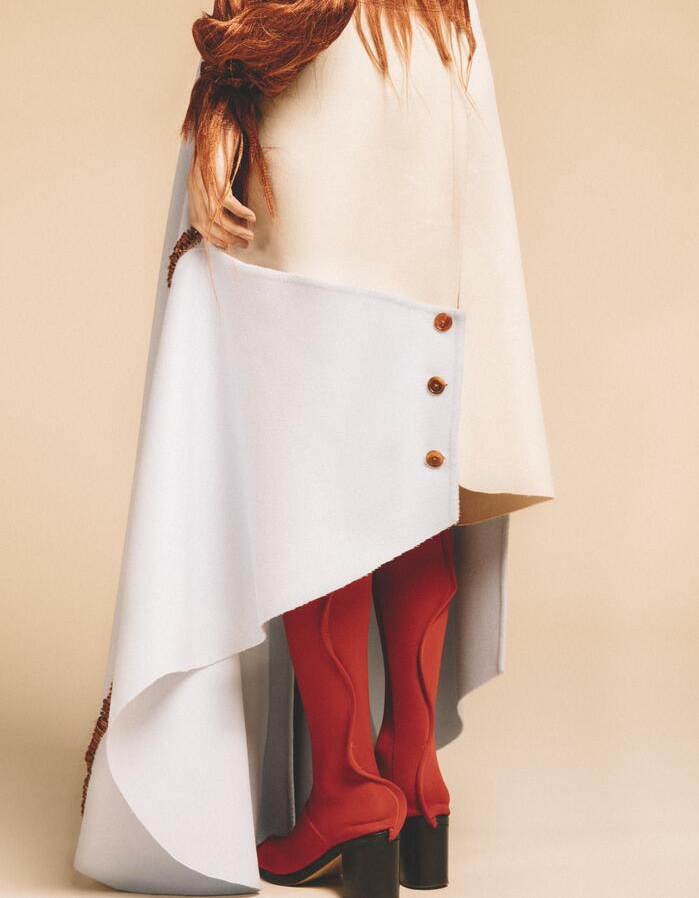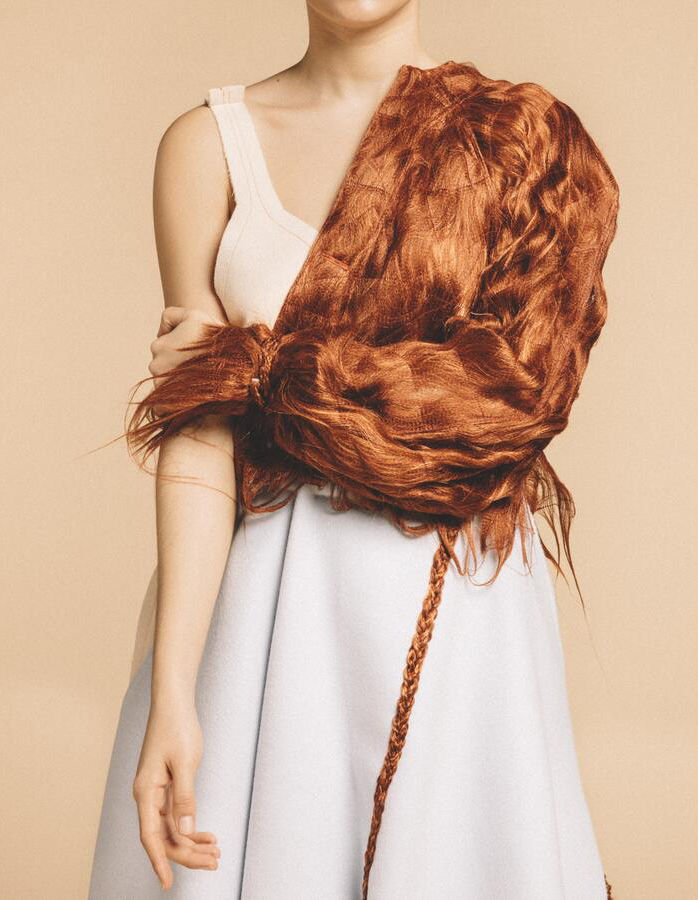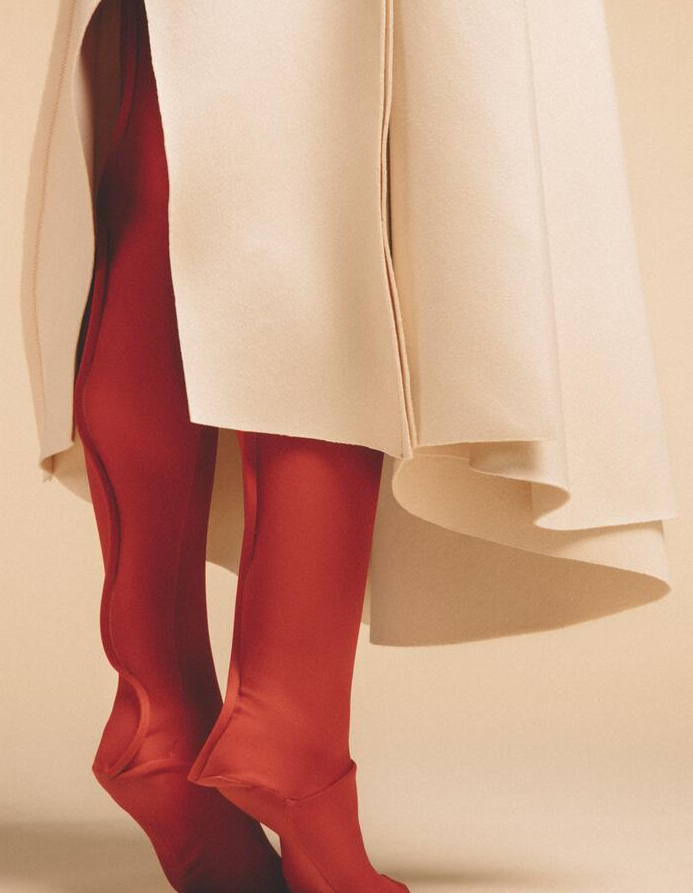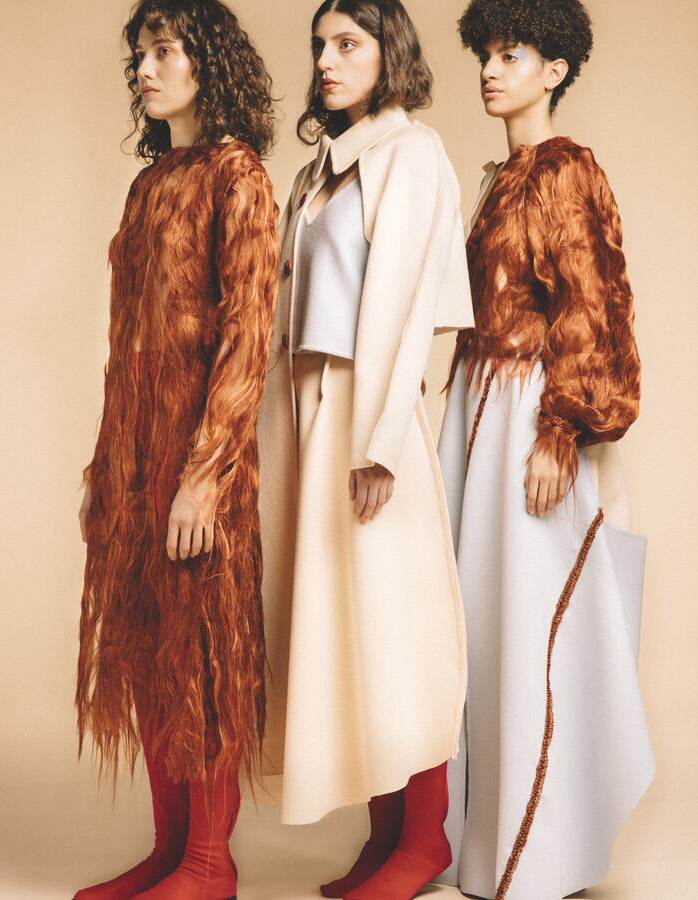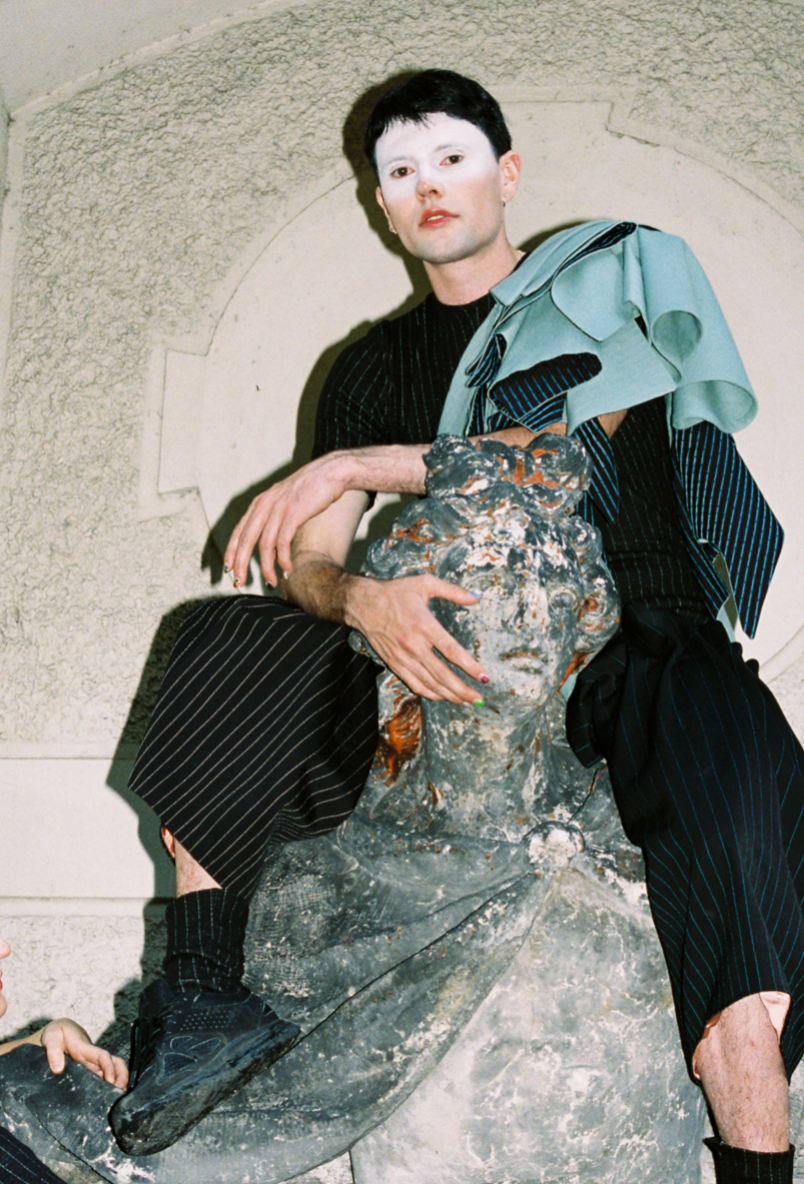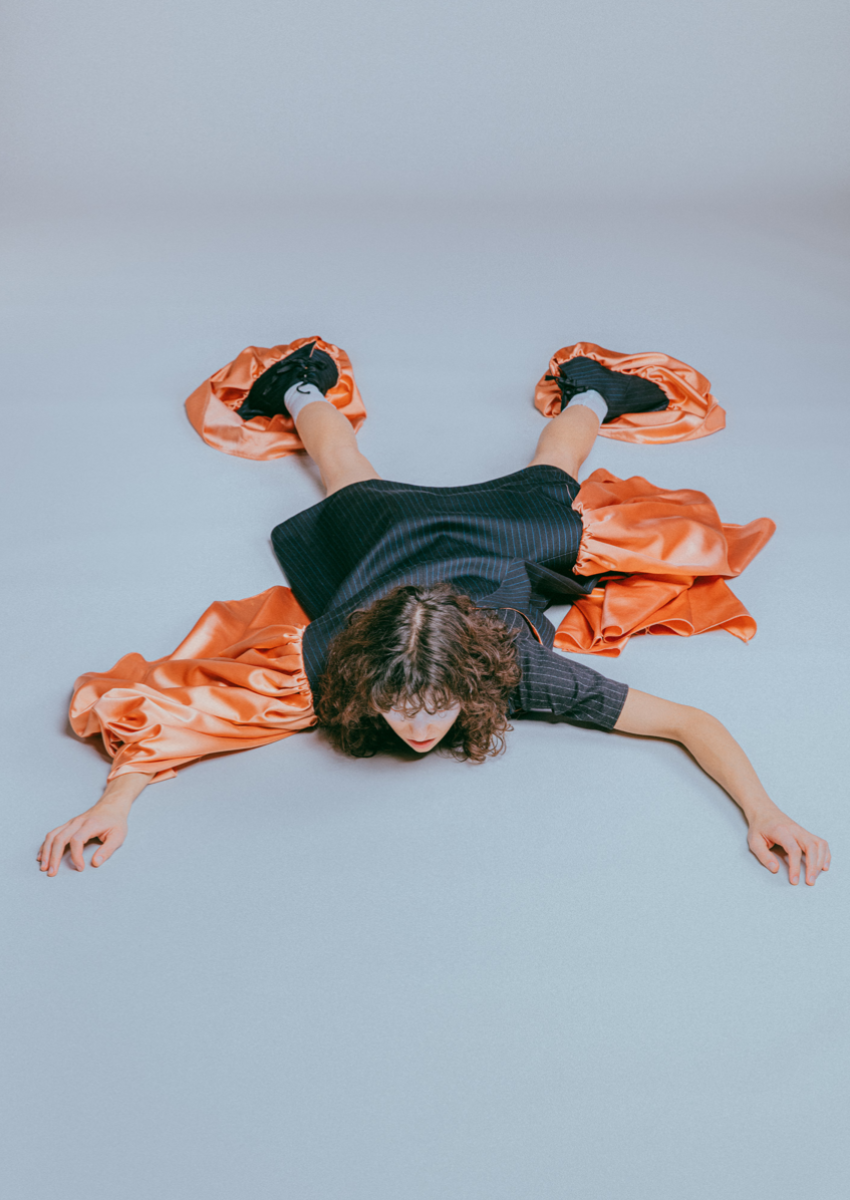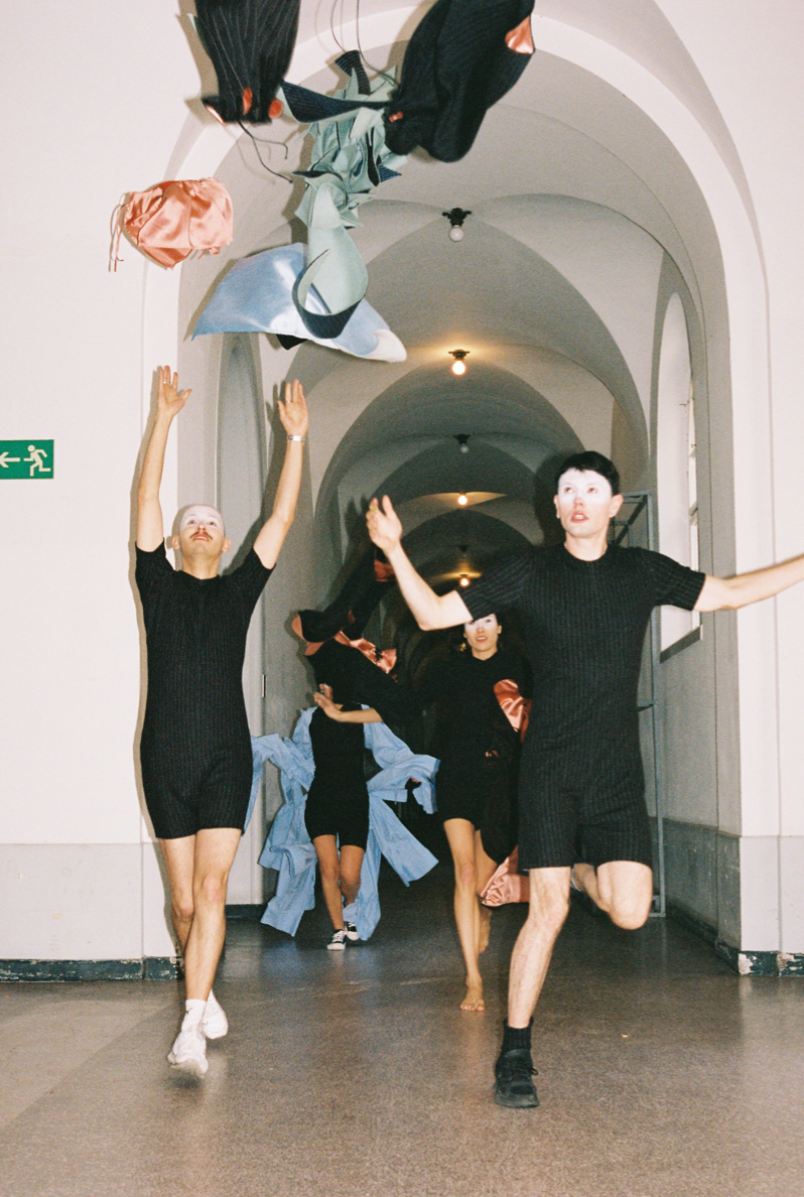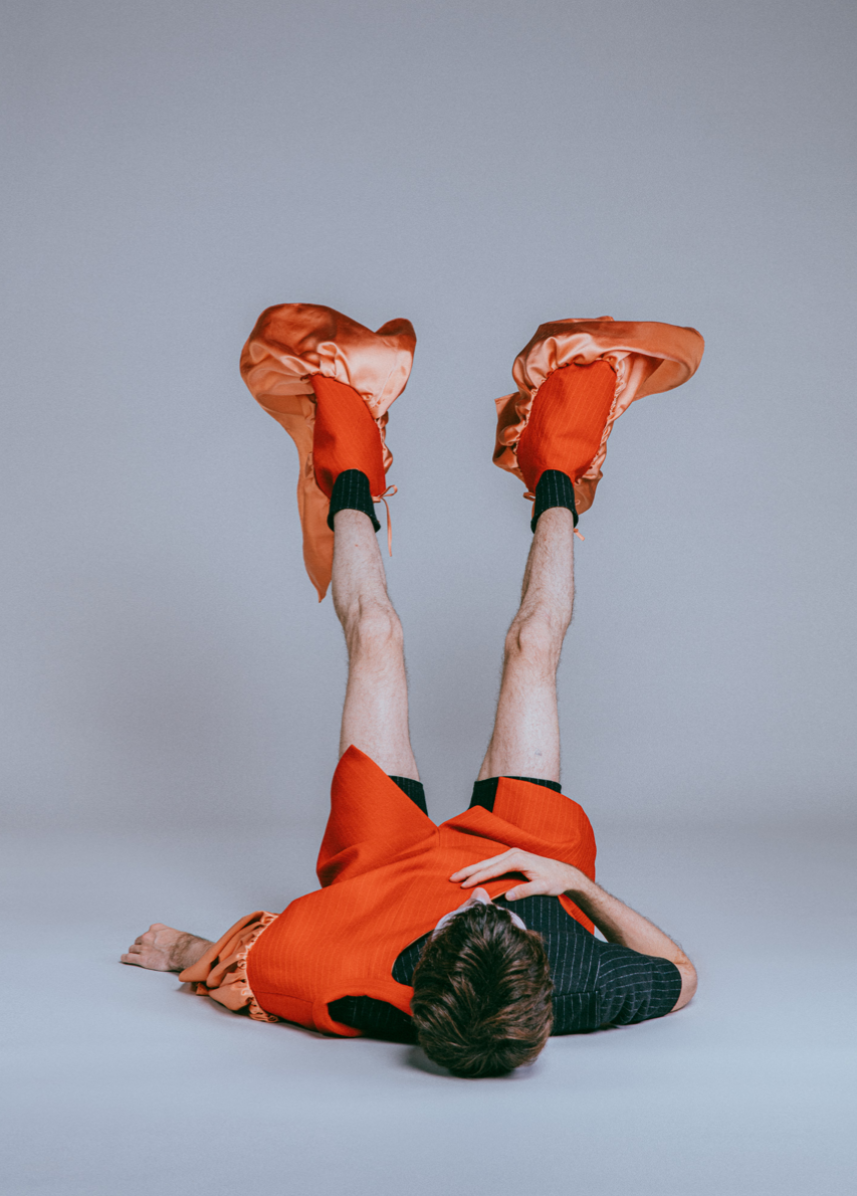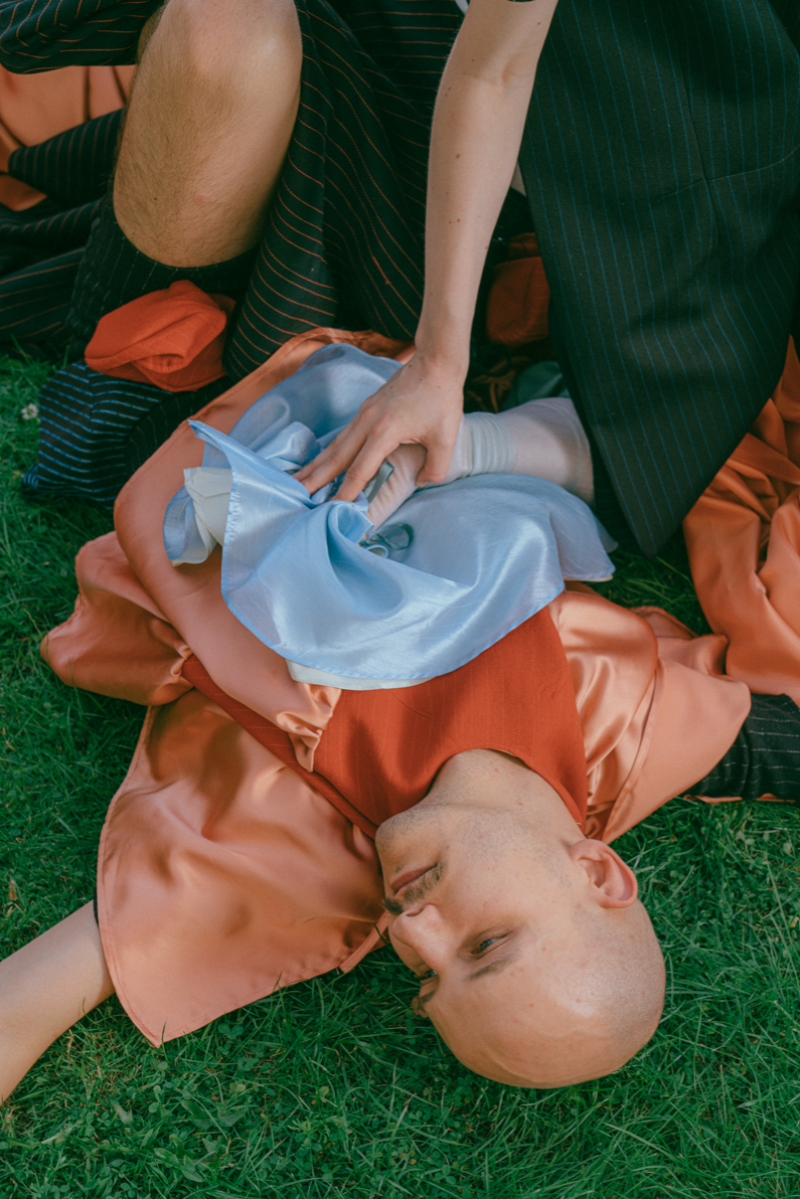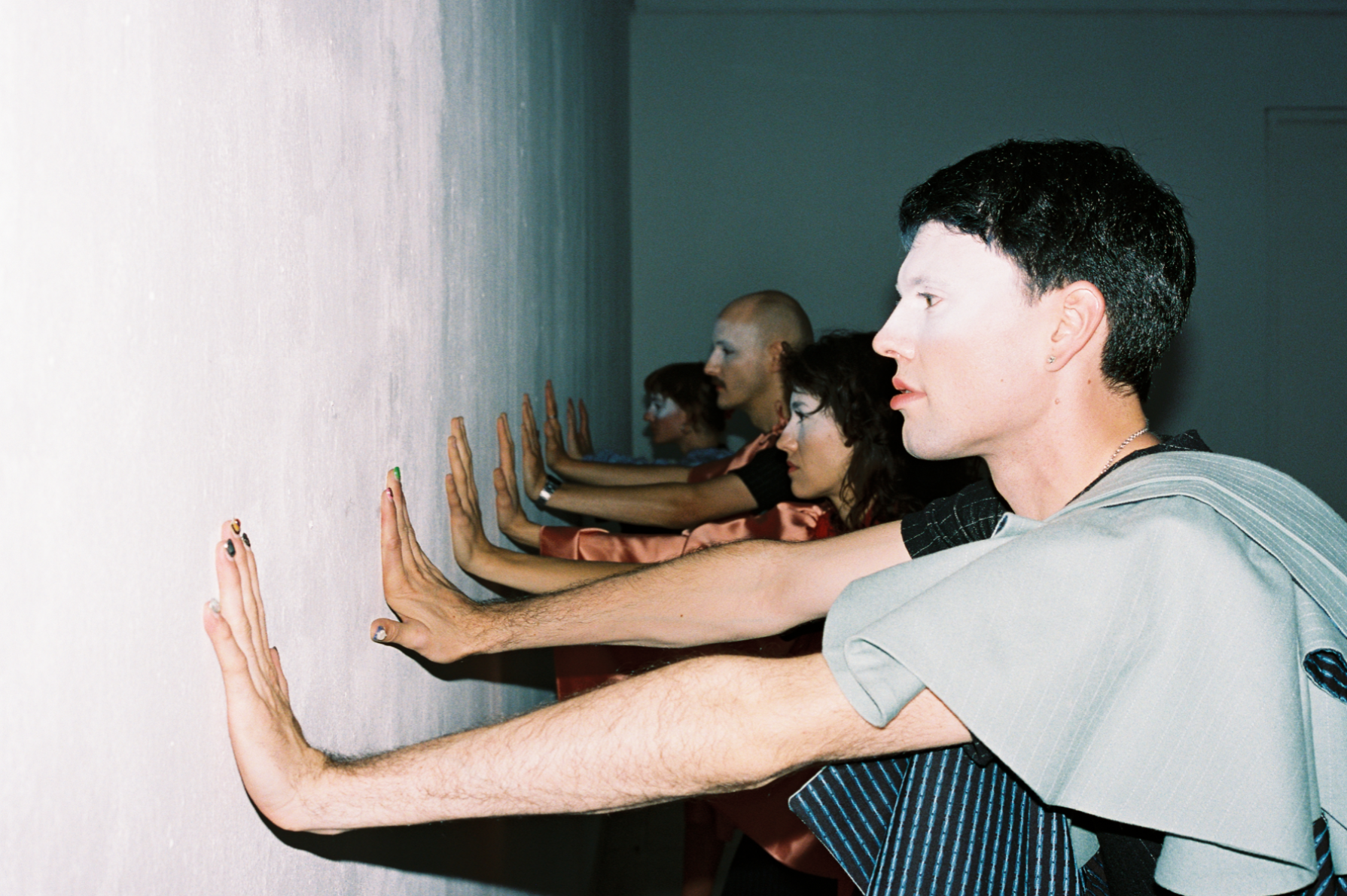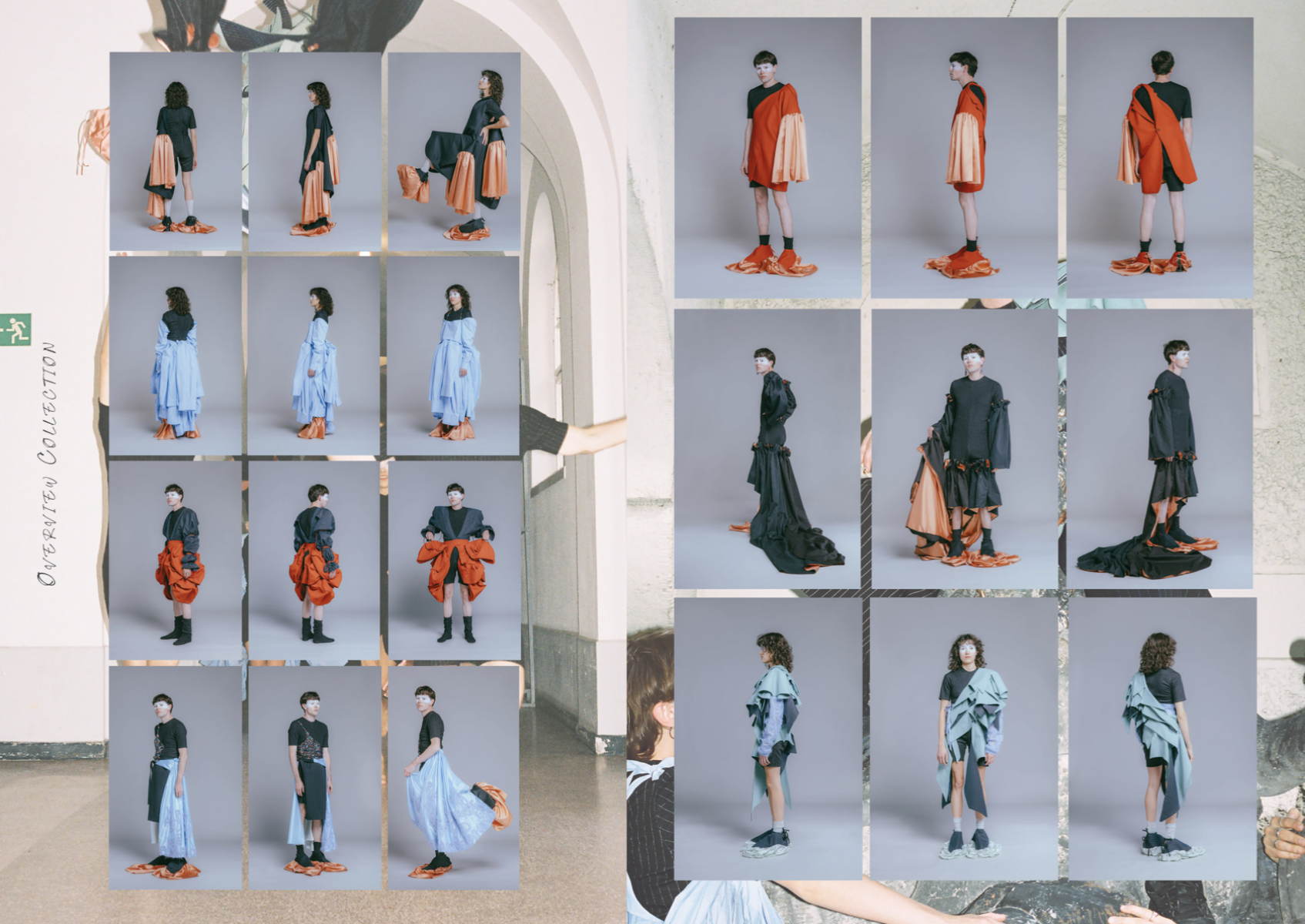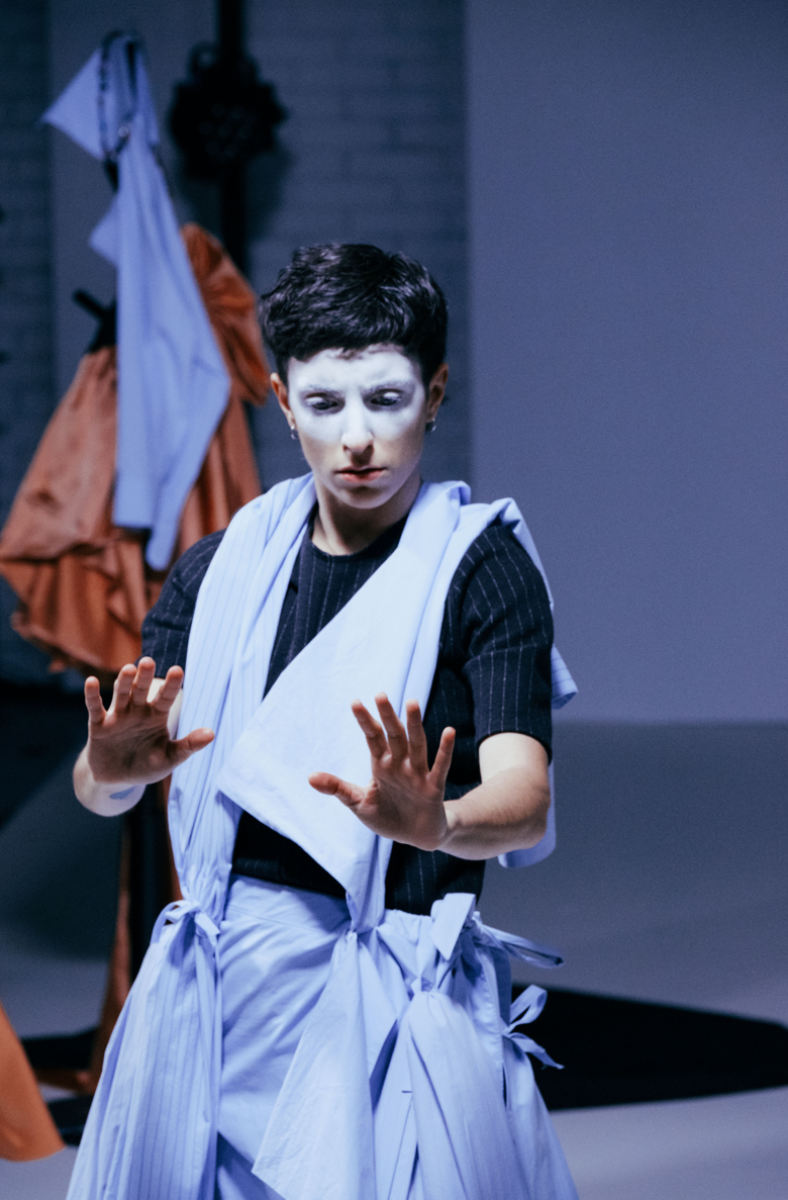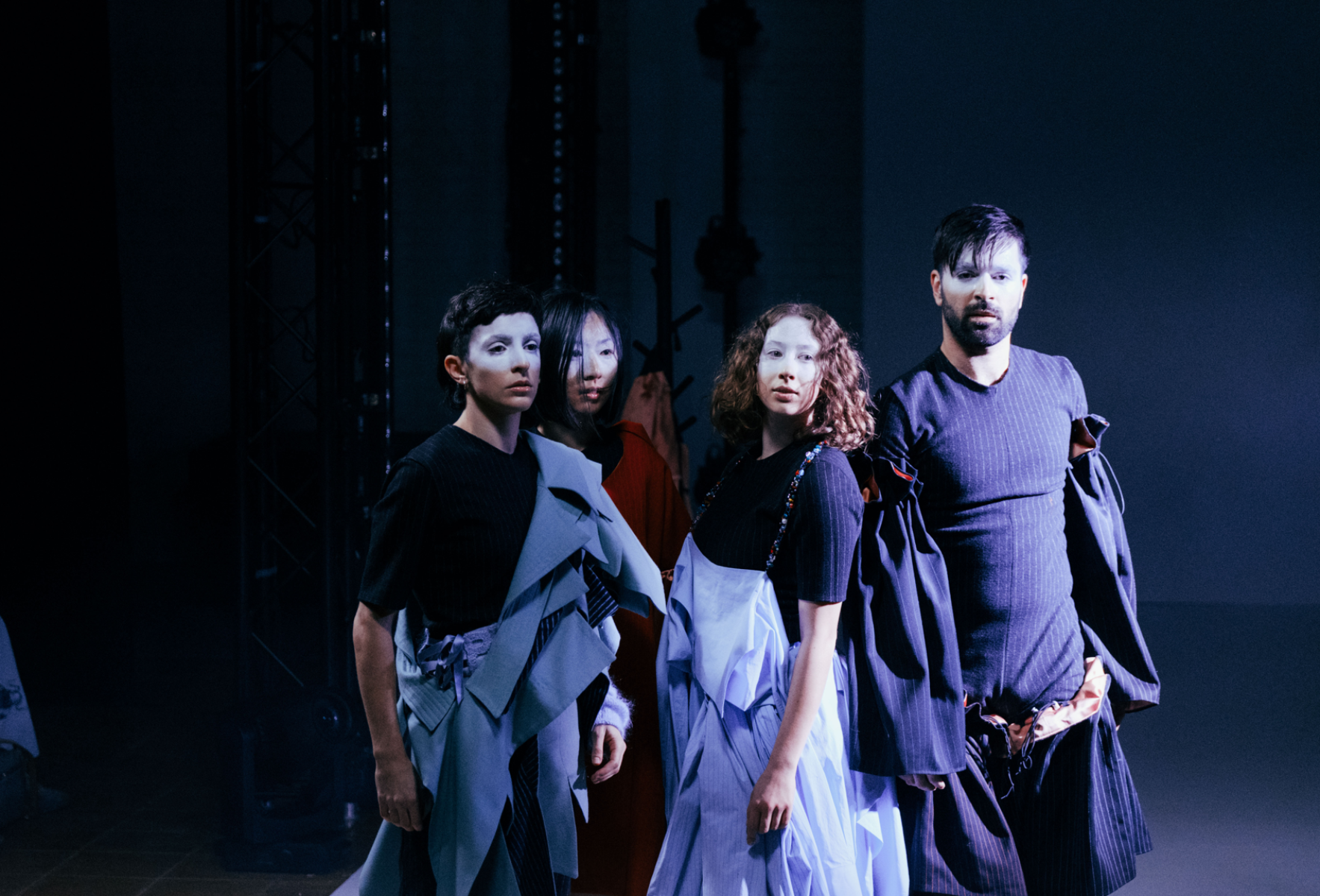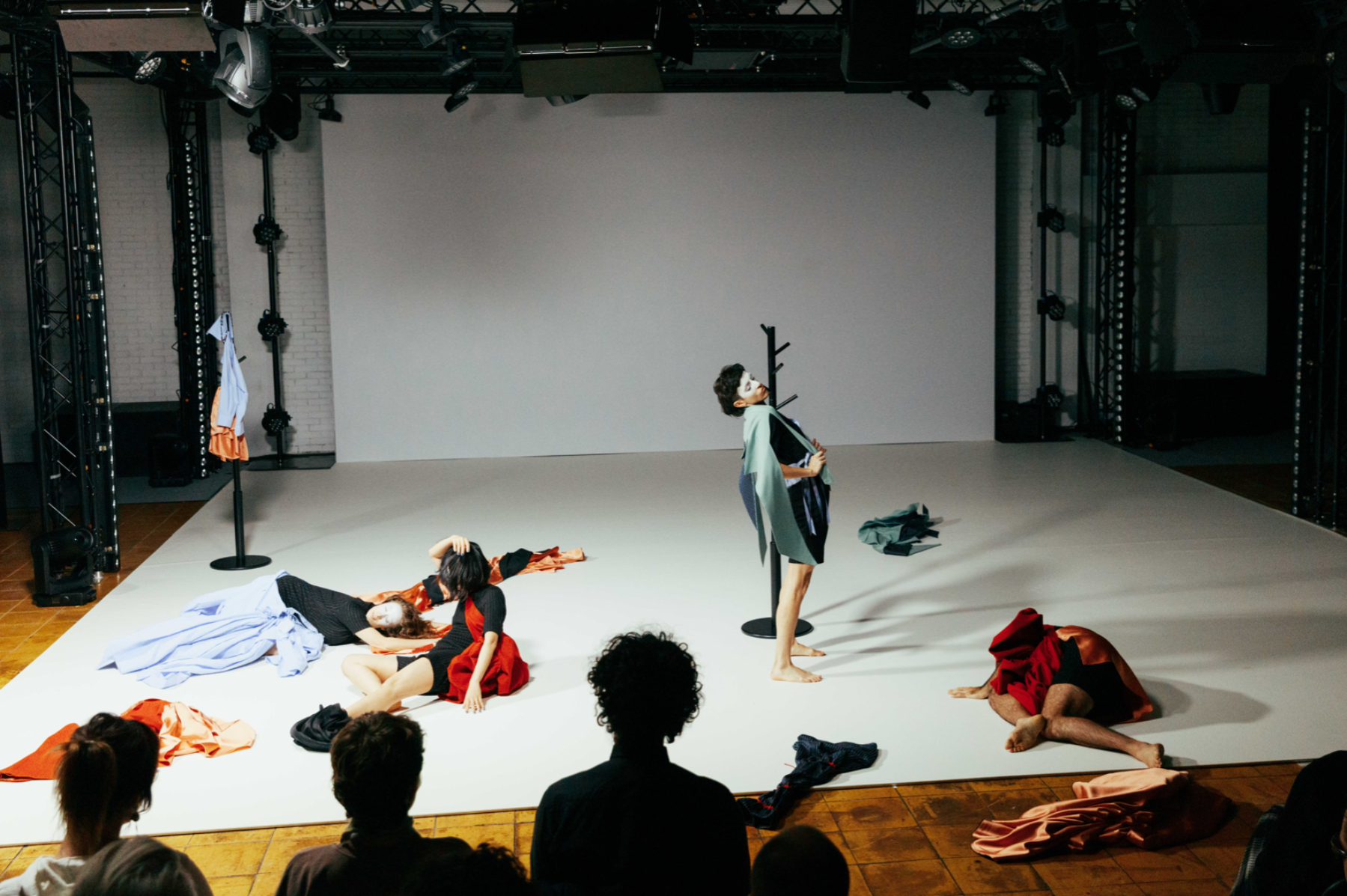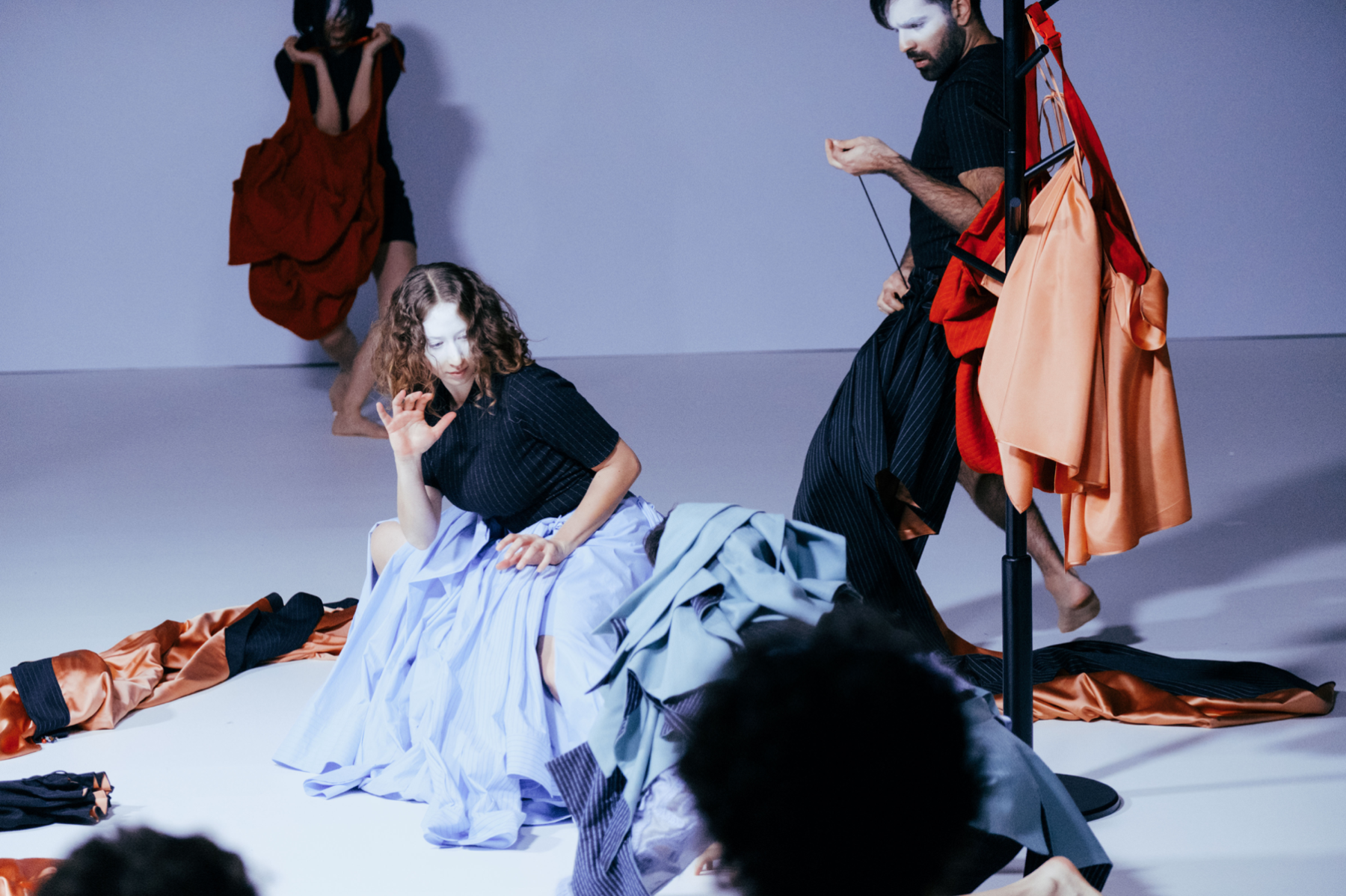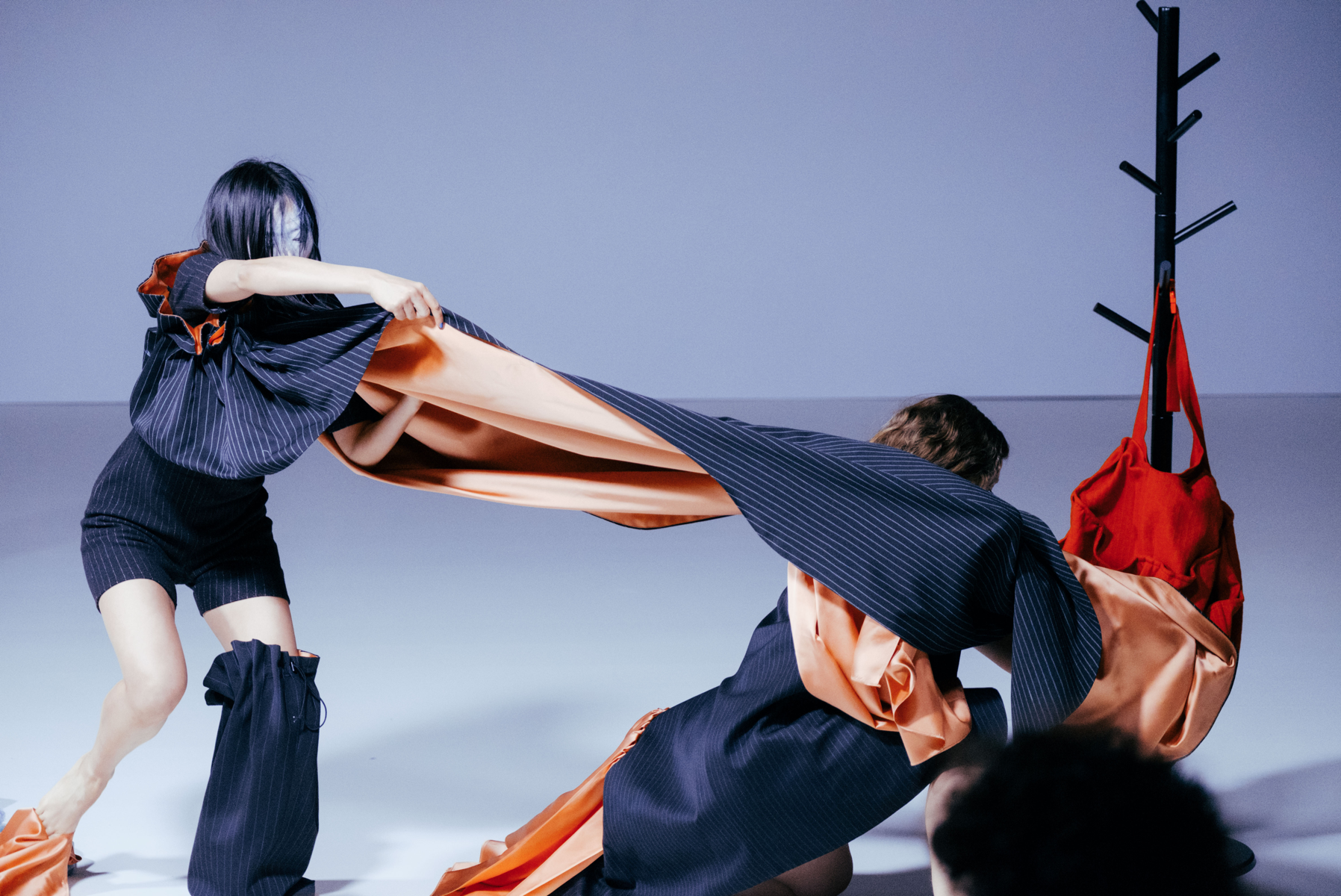Katharina Spitz
Fashion Design BA
Berlin University of the Arts
Specialisms: / Formal/Couture / Textile Innovation/Textile Art
Location: Amsterdam, Netherlands
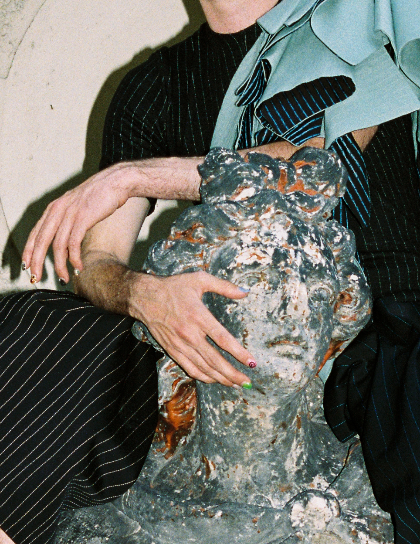

Katharina Spitz

First Name: Katharina
Last Name: Spitz
Specialisms: / Formal/Couture / Textile Innovation/Textile Art
Sectors:
My Location: Amsterdam, Netherlands
University / College: Berlin University of the Arts
Course / Program Title: Fashion Design BA
About
Katharina Spitz is an Amsterdam based Designer and Dressmaker. She has a great passion for hourlong handiwork, contemplating the human body, and the knitting and untangling of the social fabric in matter, form and spirit.
In 2013 she made her rite de passage into the world of dressmaking as an apprentice at Pio O'kan Couture in Düsseldorf; after which she emancipated herself as an autonomous fashion designer at the Berlin University of the Arts (UdK) where she graduated at the Institute for experimental Textile and Fashion Design in October 2021.
Her passion for crafting and dressmaking remains a key component within her artistic practice. Fashion is for her first of all a way of being in the world: it interprets and shapes our social networks and ultimately our position in space and time. Through critical intellectual, personal and material engagement with the world around her she seeks ways in which her designs, performances and dressmaking can open up new perspectives and ways of being in a world that is suffering from pollution, misogyny, inequality and deep-seated alienation.
Memory cultures show us how societies represent themselves and how they want to be remembered. Forget Me Not asks with which intention and what sort of objects a culture shapes its own memory and legacy. The body of work consists of textile works with unusual material properties: ceramic body parts that appear to be knitted, crochet textiles and softly knitted wool fabrics. ‘Forget Me Not’ reveals differences between how objects cultivate our memory. There are, for example, personal objects, like a knotted hair brooch to commemorate a loved one. But also objects that express the memory cultures of societies that try to overcome their own mortality through static self-representation. This tension is used by Spitz as a starting point for her own fashion designs, in which she explores the possibility of a transformative memory culture. Transience should, according to Spitz, no longer be conceived of a threat. She invites us to reflect upon existing memory cultures from a feminist and material-oriented perspective.
"In the Face of Loss" was triggered by the story of a tablecloth that found its way into my hands. This tablecloth tells a story that indicates a constructed narrative of the crafting woman. A story that calls for a feminist movement in the arts and crafts.
another myth of eternal sameness
If eternal sameness doesn't guarantee eternal closeness, than what hope could there possibly be for siblings, parents or lovers? The research of twin-narratives shows: it is trying to construct a myth. A myth of eternal sameness, which I state is a cultural snag because it is a contradiction to the way we, in contemporary western society, experience and think about selfhood. Corporate uniform is aiming to create the same kind of false myth, tries to create another myth of eternal sameness.
Play Harder is all about play. within my graduation collection i researched play as a critical perspective on contemporary fashion and artistic practice and thus questioned the strained relation between work and play in modern western society. Understanding fashion as a playful situated practice brings it back to the essence of what it could be: Relation with each other and our material surroundings and a strategy to re-appropriate our environments. This offers a strategy against distance in production and against usability and productivity claims, so overtly present in our times. in this playful process a series of ornamental objects was created: very unpractical and useless - but extremely functional for playful interaction. With these objects we can create and re-create our communal expression in play over and over again. The development of this playful process as a critical tool against production and process that is given shape solely according to economic standards resulted in a project that makes one plea very obvious: Dear Craftswo:men and designers, dear fashion-lovers and people who dress: Let's try to play harder!
The play harder performance is an improvisational performance negotiating boundaries of play, fashion and performance-arts. It involves 5 performers, 6 dynamic looks and a toolbox. It is developed in collaboration with Stichting Triplets, an Amsterdam-based performance studio. Play Harder explores the strained relation between work and play as a critical perspective on fashion-practices. The unconventional design-process - characterised by playful interventions - is now applied to performance-making. We play with garments, transforming them into objects with agency. With them we recreate our communal expression recurrently. The performance questions power-dynamics between bodies and objects while portraying play-aspects like competition, drama and the dark side of play.
